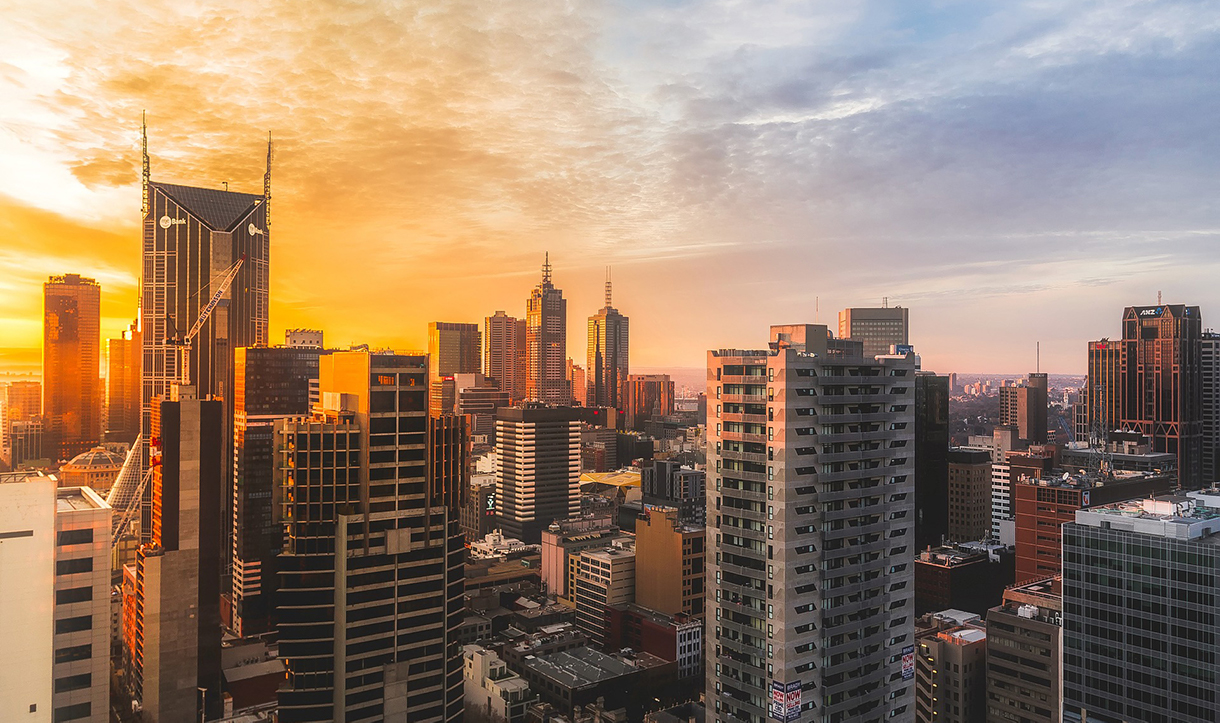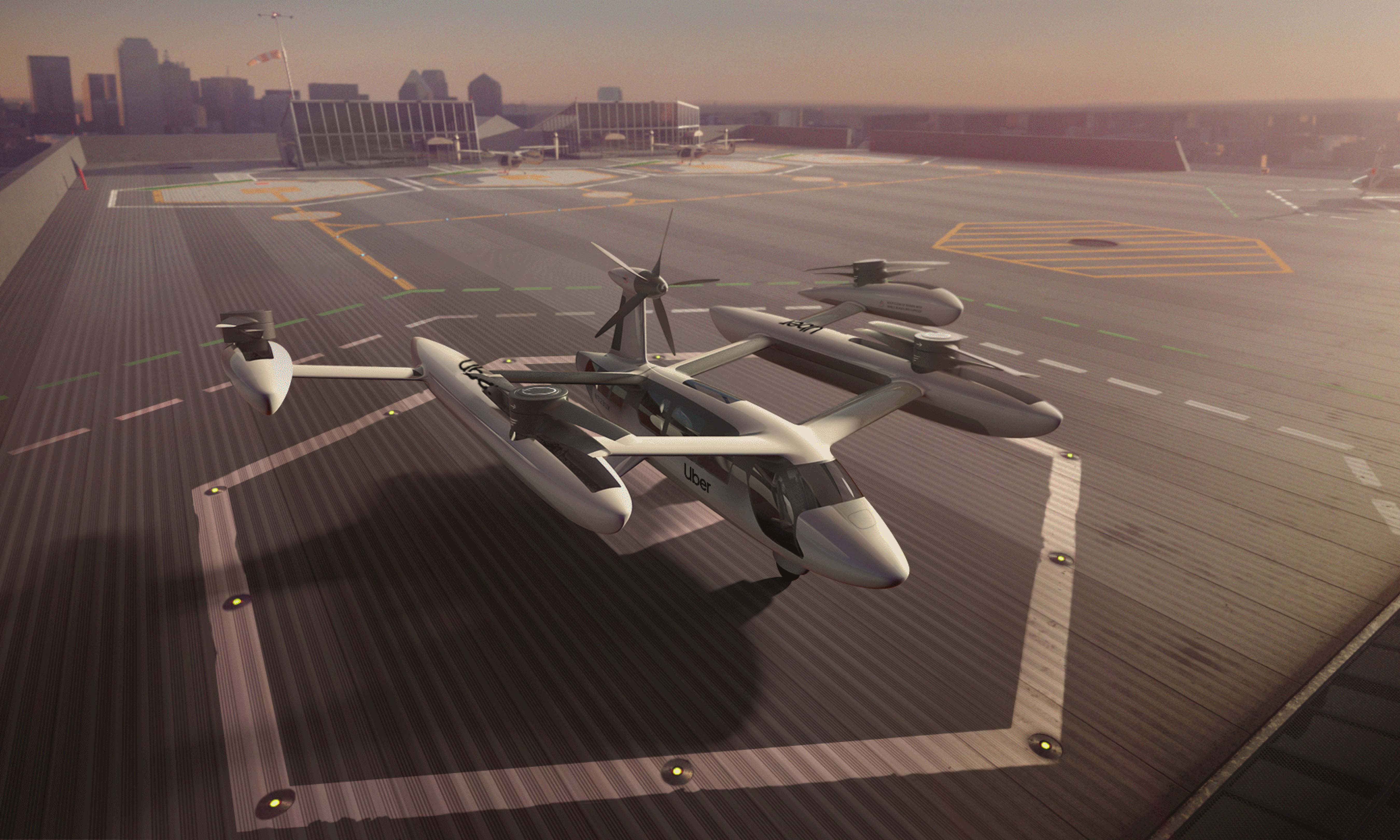
RMIT experts available for comment about Uber Air coming to Melbourne
Experts from RMIT University are available to talk to media in relation to Melbourne being named as the third city to test Uber Air. Uber Air is an aerial ridesharing scheme colloquially known as “flying taxis”.
 Uber Air is coming to Melbourne. The "flying taxi" scheme is expected to start testing in 2020. Photo: Uber
Uber Air is coming to Melbourne. The "flying taxi" scheme is expected to start testing in 2020. Photo: Uber
DRONE TECHNOLOGY
Dr Matthew Marino (0403 159 470 or matthew.marino@rmit.edu.au)
Topics: drones, drone technology, drone operations, drone regulations in Australia
“The technology for autonomous aerial transport – also known as drones – already exists. Today’s announcement means Melburnians are a step closer to travelling by drone.
“Allowing a computer to fly an aircraft, rather than a human, is nothing new. Technology has progressed so much that aerial autonomy is considered safe and reliable, arguably more so than driverless cars. While a driverless car would be faced with obstacles on the road like pedestrians on their mobile phones or other vehicles like trams and buses, aerial autonomous vehicles don’t have these obstructions.
“The biggest hurdle to drones carrying people is safety. The Civil Aviation Safety Authority (CASA) has been very progressive trialling drone technology and there are a number of drone trials happening in suburban Australia including Google's Project Wing to deliver food, drinks and medication. But we need to prove to people that this technology can be as safe as helicopters, which regularly fly in our cities. More research and development are needed in this area.”
Dr Matthew Marino is an aerospace engineer and co-leader of the Unmanned Aircraft Systems Research Team at RMIT. He is an expert in drone technology and operations and has had numerous research publications and industry collaborations in these areas.
TRANSPORT, PLANNING AND INFRASTRUCTURE
Dr Chris De Gruyter (0403 073 743 or chris.degruyter@rmit.edu.au)
Topics: transport planning, transport impacts of new land use development, public transport
“Today’s announcement broadens the transport options that are available to Melburnians and transport choice is always welcome.
“The big question is what kind of trips Uber Air will be used for. More than half of trips in metropolitan Melbourne – seven million a day out of 13 million – are less than 5km, according to latest available data. Only 13% of trips are more than 20km and less than 2% are more than 50km.
“Based on what travel survey data tells us, we might see skyports at key activity centres and employment hubs like the airport, Melbourne CBD and other key precincts like Clayton or Dandenong.
“But Uber Air isn’t going to help with managing our urban transport problems. These vehicles are very low capacity – similar to what a car could carry – while there are also questions about if these vehicles will create visual clutter in the sky and how environmentally-friendly they are. Another risk is ‘empty running’, where there are no passengers, but the vehicle has to travel to pick people up from another location.”
Dr Chris De Gruyter is a Vice-Chancellor’s Research Fellow in the Centre for Urban Research at RMIT. He is currently researching the impacts of new land use development on public transport. Prior to working in academia, Chris worked in transport planning for 12 years, both with the Victorian Government and in private consulting. His wider research interests span the areas of travel demand management, public transport and land use planning.
MARKETING AND BRANDING
Associate Professor Con Stavros (0411 231 371 or con.stavros@rmit.edu.au)
Topics: marketing, branding and promotion, consumption experience“Uber’s decision to select Melbourne is marketing gold for the city, giving it the gravitas to position itself as a technology leader and a destination of choice for investors and innovators.
“Uber Air is a genuinely exciting and innovative offering from a high-profile technology company. Its choice of Melbourne is influential to other brands in similar or associated sectors. Those brands will view Uber’s decision as an endorsement of Melbourne, its ambition, its capability, its infrastructure and workforce; driving investment from other firms keen to ride the positive wave the decision will create. No amount of advertising can rival the power of such an affirmation.
“The announcement today immediately raises Melbourne’s profile on the global stage and stokes the perception that the city will become an important hub in the global technology chain over the coming decade. While it is too early to proclaim Melbourne as the ‘down under Silicon Valley’ just yet, the seeds of this decision by Uber will resonate strongly in the years to come. It’ll give Melbourne’s leaders a clear marketing message that they can leverage if they want to actively pursue that perception.
“While being the ‘sporting capital of the world’ remains an important message for the city’s positioning as an events leader, the digital age also requires cities to show themselves as being agile and ready for the transformation unfolding in society and the world of work. This is a wonderful opportunity for Melbourne to embrace that.”
Associate Professor Con Stavros is a marketing expert in the School of Economics, Finance and Marketing at RMIT. He is a regular media commentator on all things marketing and is particularly interested in the intersection between technology and consumption.
THE ECONOMY
Emeritus Professor David Hayward (0416 174 833 or david.hayward@rmit.edu.au)
Topics: Victorian economy, social service sector, social policy, employment
“Today’s decision is a significant win for Victoria’s economy.
“Despite all the hype about small companies and start-ups being all the rage, the world economy is increasingly being driven by the global tech giants. The Big Five technology firms — Apple, Alphabet, Microsoft, Facebook and Amazon — account for 15% of the New York Stock Exchange, and each one has tremendous market clout.
“Uber is not far away from that elite list. Like its bigger and more successful rivals, what it does matters. And what matters is not just about products, but also geography: where in world will the tech giants invest and not just distribute product? For a country like Australia, that matters an awful lot, because our level of R&D spend is low, particularly in the private sector.
“Uber picking Melbourne as a trial site for its latest air adventure matters, not just to Australia, but Victoria, as the state continues to diversify away from smoke stack industries. There’s the initial investment from Uber, which has about 70 partner organisations in the project, including Bell and Boeing's Aurora Flight Sciences, and that will bring with it flow on impacts for Melbourne in research and product innovation.”
Emeritus Professor David Hayward is an economist and was previously the Director of the Victorian Council of Social Service RMIT Future Social Service Institute. Before that, he was the Dean of RMIT’s School of Global, Urban and Social Studies for seven years. He has undertaken extensive research around the funding of social services and social policy and is a regular media commentator on budgets and politics.
***
For general media enquiries, please contact RMIT: 0439 704 077 or news@rmit.edu.au
- Science and technology
- Society
- Government & Politics
- Future World of Work
Acknowledgement of Country
RMIT University acknowledges the people of the Woi wurrung and Boon wurrung language groups of the eastern Kulin Nation on whose unceded lands we conduct the business of the University. RMIT University respectfully acknowledges their Ancestors and Elders, past and present. RMIT also acknowledges the Traditional Custodians and their Ancestors of the lands and waters across Australia where we conduct our business - Artwork 'Luwaytini' by Mark Cleaver, Palawa.